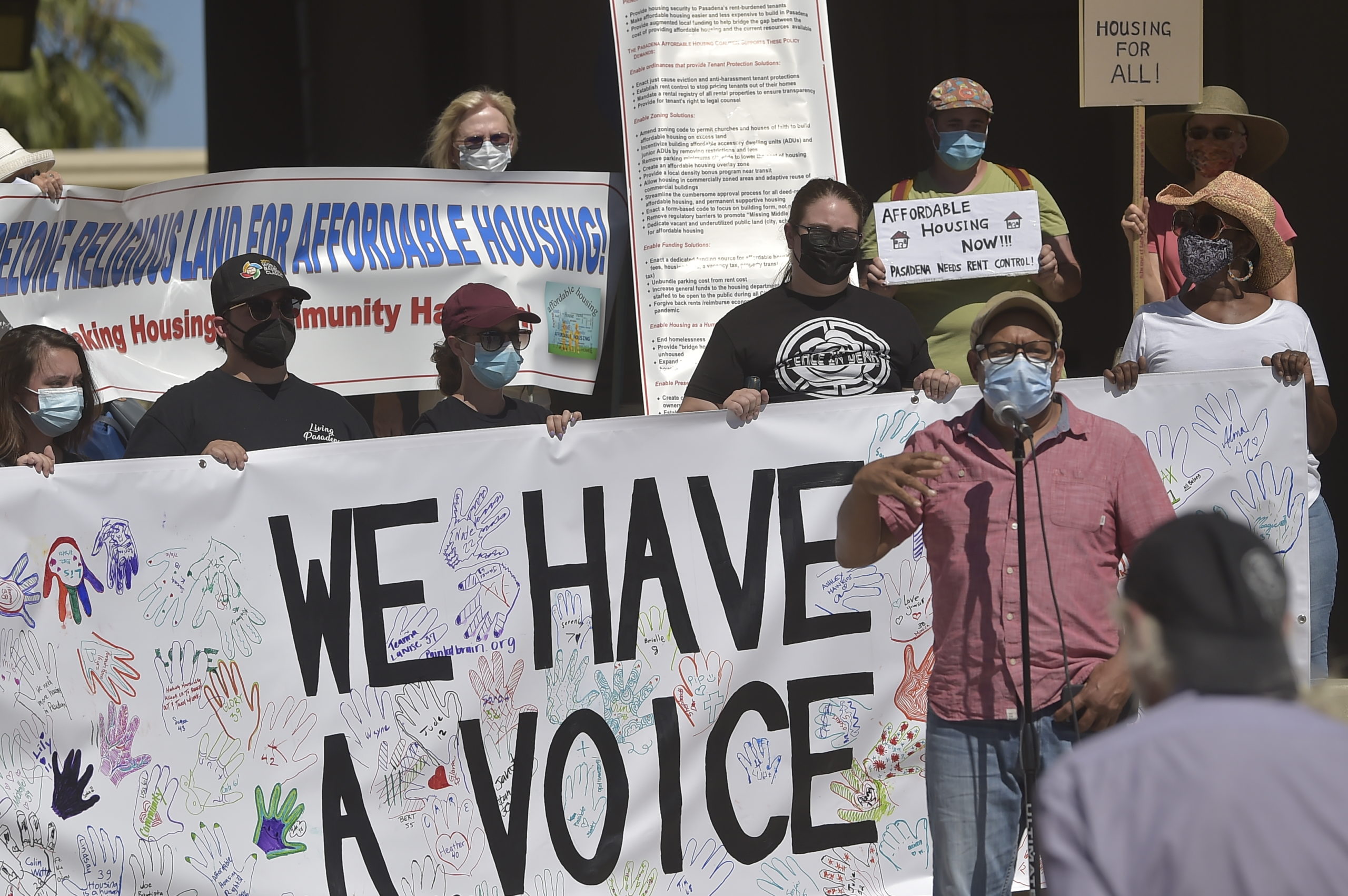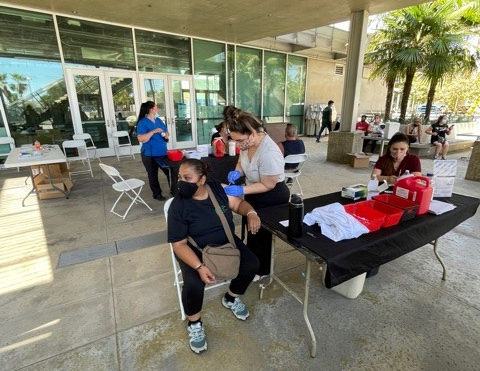CDC issues new temporary eviction moratorium
On Monday, Pasadena Public Information Officer Lisa Derderian sent out a statement in an effort to allay local renters’ fears about the ending of the federal eviction moratorium.
“The federal eviction moratorium has now expired and there are a lot of renters panicking even though they are still protected by our state and local moratoria. Pasadena renters can call the Housing Rights Center at (626) 831-9732 if they have questions about how they are protected and the steps they need to take to stay protected. www.stayhousedla.org is another great resource for LA County residents with information on eviction moratoriums/renter protections, rental assistance, and even connection to free legal services,” Derderian said in an email. “Finally, we encourage renters to apply for state emergency rental assistance if they are behind on rent or struggling to make rent due to the pandemic. The state is now covering 100% of areas for eligible renters. Landlords can apply too.”
On that same day, Pasadenans Organizing for Progress (POP) joined with a coalition of affordable housing advocates hoping to change the city’s Housing Element draft which they claim has not met the housing needs for the average person in the city. The Housing Element allows cities to “prepare a community-specific approach to ‘how’ and ‘where’ housing will be addressed to meet the needs of the community,” according to the city.
The coalition of housing advocates argue that Pasadena has not met its Regional Housing Needs Assessment for low-income housing.
Sporting signs that read “We have a voice” and “Affordable housing now … Pasadena needs rent control,” organizers’ demands fell mostly on deaf ears during the meeting as council voted to authorize Pasadena’s planning director to submit the draft 2021-2029 Housing Element to the California Housing and Community Development Department.
“We are going to have to keep exploring opportunities for affordable housing,” Mayor Victor Gordo told council Monday evening.
“The Affordable Housing Coalition is pleased that Council members Jess Rivas and John Kennedy, the two strongest proponents of affordable housing and tenant protections on the Council, framed the motion that was passed unanimously to send the Draft Housing Element on to the State for review.
“Recognizing the draft is short on details, the motion explicitly directs staff to develop specific measurable goals and policies that maximize the production of affordable housing and tenant protections. Councilmember Rivas referenced the coalition’s policy proposals ‘as a good starting point.’
“This is significant recognition of the work done by the 11 members of the coalition to raise awareness about the Housing Element in the community who showed up to the rally or made public comment.
“Mayor Gordo emphasized the need to continue the work strengthening the Housing Element.
“The coalition eagerly awaits the opportunity to collaborate in building a path forward,” said Ed Washatka, POP Housing Committee Co-chair; POP Housing Justice Committee Co-chair, in a statement released after the council meeting.
All Southern California cities are required to revise their housing elements this year. The California Department of Housing and Community Development (HCD) determines the share of the state’s housing need for each region based off population projections prepared by the California Department of Finance and other factors identified in recent housing legislation. In Southern California, the Southern California Association of Governments (SCAG) then allocates each local jurisdiction its share of the regional housing need. Pasadena’s target for 2021-2029 is 9,429 new residential units, 6,000 of which are required to be affordable for very low-, low- and moderate-income households.
For the upcoming planning period, the city’s total Regional Housing Needs Allocation (RHNA) is 9,429 new housing units, which includes 2,747 very low-income, 1,662 low-income, 1,565 moderate-income, and 3,455 above moderate-income units.
However, the city isn’t required to build these units. It only needs to show that it can meet its allocated units.
The City Council needs to adopt the updated 2021-2029 housing element by Oct. 15, 2021.
Following days of pressure from advocates, and progressive Reps. Cori Bush (D-Mo.), Alexandria Ocasio-Cortez (D-N.Y.), Jimmy Gomez (D-Calif.) and Mondaire Jones (D-N.Y), various media outlets reported Tuesday afternoon that, President Joe Biden’s administration is planning a new eviction moratorium for 60 days in areas of the country with high or substantial COVID-19 transmission. Bush spent several days sleeping on the Capitol’s steps to keep pressure on Congress and the White House.
Later on Tuesday, the Centers for Disease Control and Prevention issued a new order temporarily halting evictions in counties with substantial or high levels of community transmission.
“The eviction moratorium allows additional time for rent relief to reach renters and to further increase vaccination rates,” the CDC said in a statement. “In the context of a pandemic, eviction moratoria—like quarantine, isolation, and social distancing—can be an effective public health measure utilized to prevent the spread of communicable disease. Eviction moratoria facilitate self-isolation and self-quarantine by people who become ill or who are at risk of transmitting COVID-19 by keeping people out of congregate settings and in their own homes.”
The order will expire on Oct. 3 but can be extended or modified based on public health circumstances.
Originally published Aug. 3, 2021 at 4:28 p.m. / Updated Aug. 4 at 2:33 p.m.







